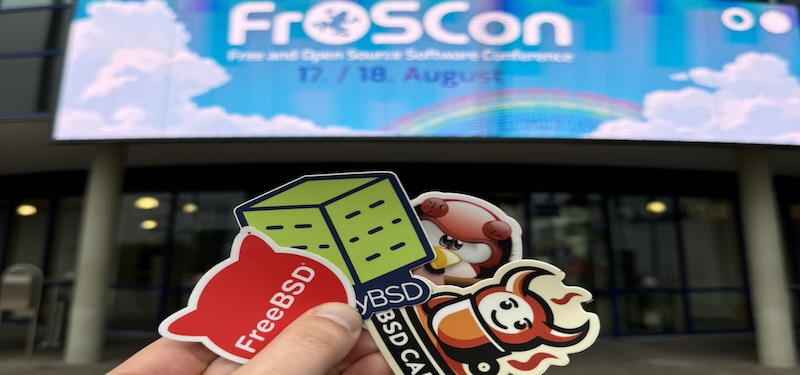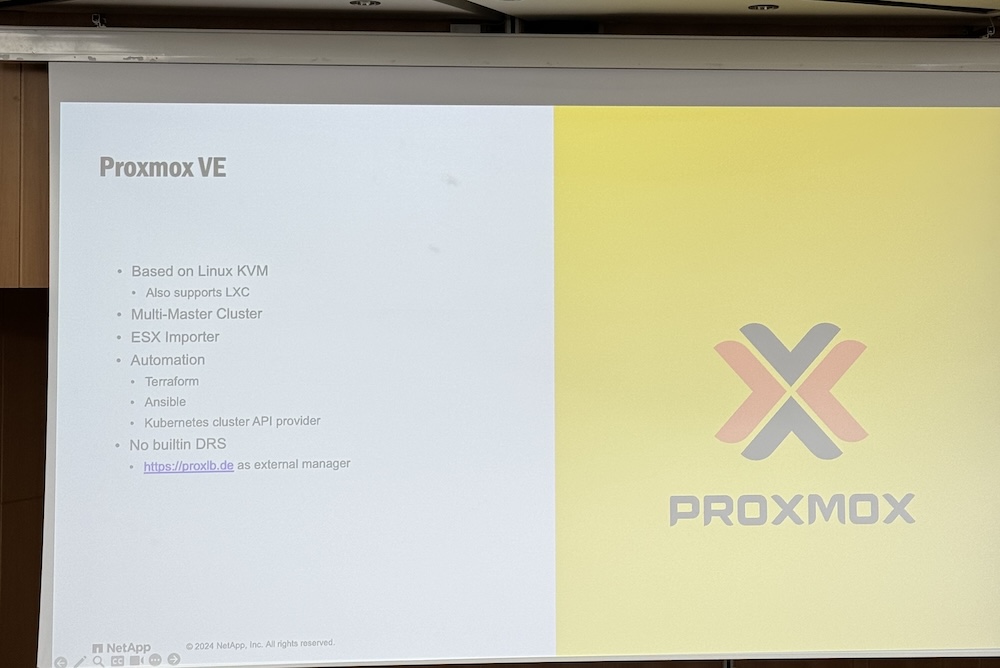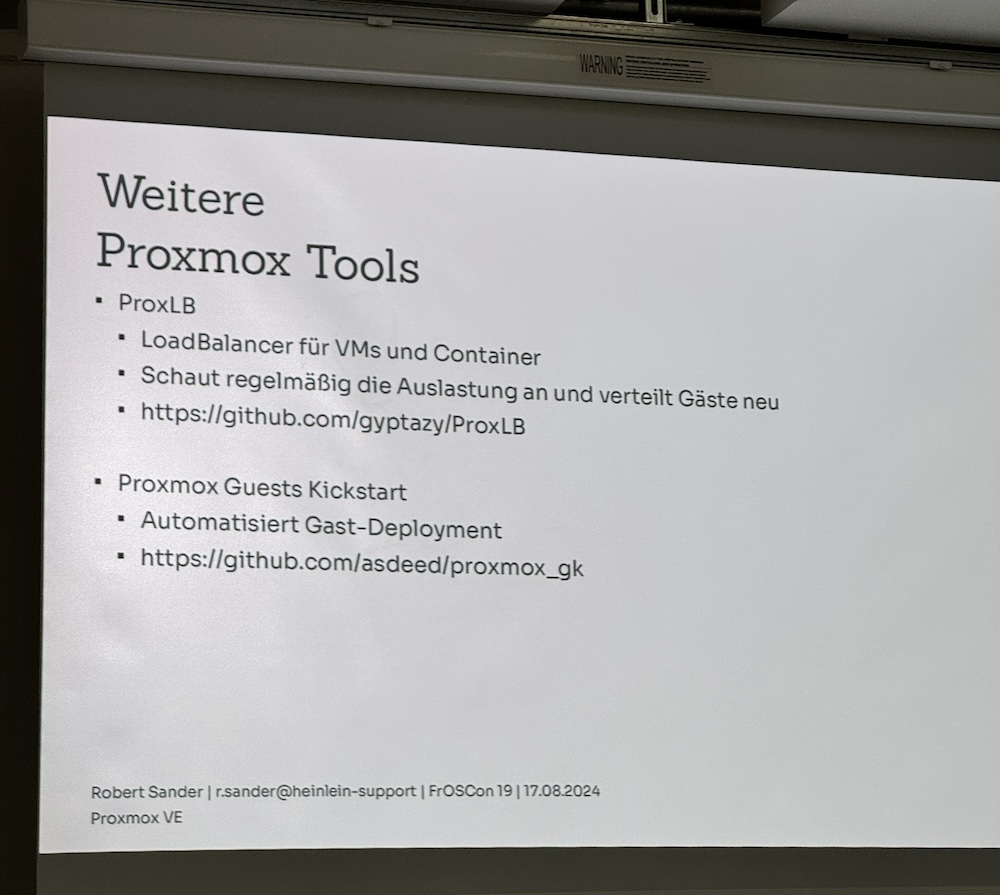FrOSCon 2024 – Insights from the OpenSource Conference in Sankt Augustin, Germany

Yesterday I attended one of my favorite conferences – FrOSCon 19! The FrOSCon (Free and Open Source Software Conference) is an annual event held in Sankt Augustin, Germany, typically at the Hochschule Bonn-Rhein-Sieg. The conference focuses on free and open-source software (FOSS), bringing together developers, users, and enthusiasts to discuss the latest trends, projects, and technologies in the open-source community. FrOSCon features a range of activities, including technical talks, workshops, and developer meetups. The event also provides a platform for various open-source projects to showcase their work and for participants to network and collaborate. Topics covered span across programming languages, security, cloud computing, open hardware, and more. And it’s already the FrOSCon 19 in the year 2024. Time flies, I guess!
At FrOSCon 2024, after spending time socializing and engaging in stimulating discussions on topics like cryptography, trust in hardware manufacturing, and encouraging people to explore the BSD Cafe community and try out my BoxyBSD project, I finally attended a couple of key talks. Despite the challenges of balancing social interactions with attending sessions, I especially found these talks particularly relevant.
My favorite talks were on “VMware – Quo Vadis?” and Proxmox. These talks represent the current situation in the virtualization market, especially in light of the ongoing changes in the Broadcom and VMware landscape, where many are considering alternative solutions.
Alexander Wirt (@formorer), a Debian developer from NetApp (former credativ GmbH), delivered an insightful talk that provided a thorough overview of VMware alternatives, covering important considerations and additional tools for managing these transitions. But it was not only about Proxmox and also other solutions were mentioned like oVirt, bhyve, XCP-ng and many more. All of them have their own advantages and of course their disadvantages. As Alexander already said, it’s often not that easy to judge them all and you should take time to plan your migration – and we’re very happy to assist you in such cases where you can simply get in touch with Alexander or me.
Robert Sander (@gurubert) from Heinlein Support focused on Proxmox in his talk, giving a comprehensive overview of the product, its capabilities, and related tools.
I was especially pleased that both speakers mentioned my ProxLB tool, which adds the missing DRS enterprise feature to Proxmox by only orchestrating the Proxmox API, highlighting my contribution to the Proxmox ecosystem as well as to the opensource community. After the talks I was happy that several people came in touch with me and asking for some more details but also for details about Proxmox in general.
 |  |
Within the last talk on Saturday, I joined the PostgreSQL talk from my teammate Michael Banck (@mbanck). We dived into the most significant updates in the coming PostgreSQL version 16 and version 17, while also exploring key new extensions and other projects within the PostgreSQL ecosystem from the past few years.
PostgreSQL stands as the most advanced open-source relational database available today. Every year, a new major version is released, with version 16 scheduled for this fall.
This presentation, with a focus on administrator’s changes, will highlight the most important features and enhancements in versions 16 and 17. Additionally, it will provide an overview of the most notable new extensions and projects that have emerged in the PostgreSQL community over recent years.
I had a fantastic time reconnecting with all of you, attending the excellent talks, and especially seeing my ProxLB project mentioned in the Proxmox-related sessions. It was also incredibly rewarding to introduce more people to BSD-based systems like FreeBSD, OpenBSD, and NetBSD by discussing and guiding them toward my BoxyBSD project and our BSD Cafe community. Overall, it was a great first day! I am looking forward to seeing you all again tomorrow for another exciting day!
Ressources
- VMware Quo Vadis – Alternatives To VMware by Alexander Wirt, NetApp [Slide | Recording]
- Proxmox – Easy Virtualization by Robert Sander, Heinlein Support [Slide | Recording]
- ProstgreSQL Updates in General, Michael Banck, NetApp [Slide | Recording]
- All Recordings
- ProxLB – (Re)Balance VM Workloads Across Nodes in Proxmox Clusters. [Website | GitHub]
